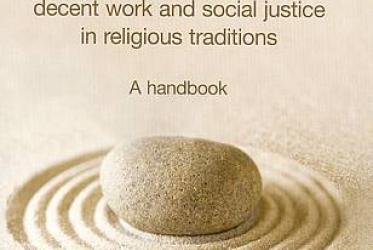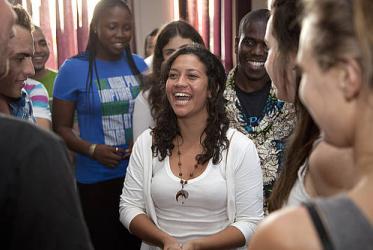Displaying 521 - 540 of 613
27 September 2012
European churches called to confront current financial crisis
21 September 2012
Churches pray and care for creation
30 August 2012
WCC forum issues a call to promote “economy of life”
22 June 2012
WCC forum focuses on poverty, wealth and ecology
19 June 2012
Churches on the way to Rio+20
30 April 2012
Ethics and human rights focus for Rio+20 summit
22 March 2012
Christian leaders “fast for fair food”
02 March 2012
Working together for social justice and decent work
23 January 2012
Just peace, prayer and a common witness keep church relevant
22 December 2011
Searching for a new financial and economic architecture
20 December 2011
Youth promise active involvement for environmental justice
14 December 2011
Durban outcome is not enough, says WCC
13 December 2011
Religious voices advocate for climate justice at Durban
28 November 2011
Before Durban climate talks, Brazilian ecumenists think about Rio+20
23 November 2011














